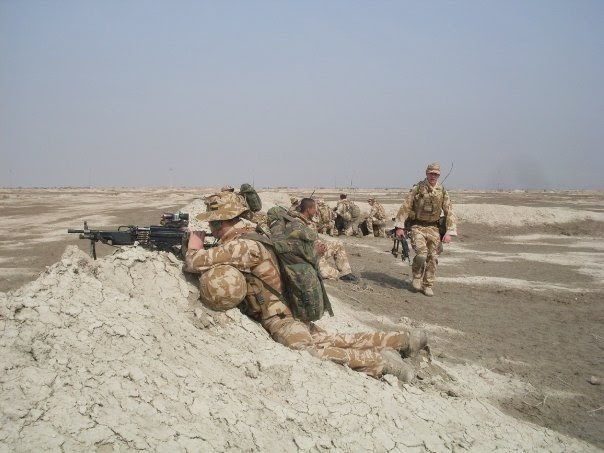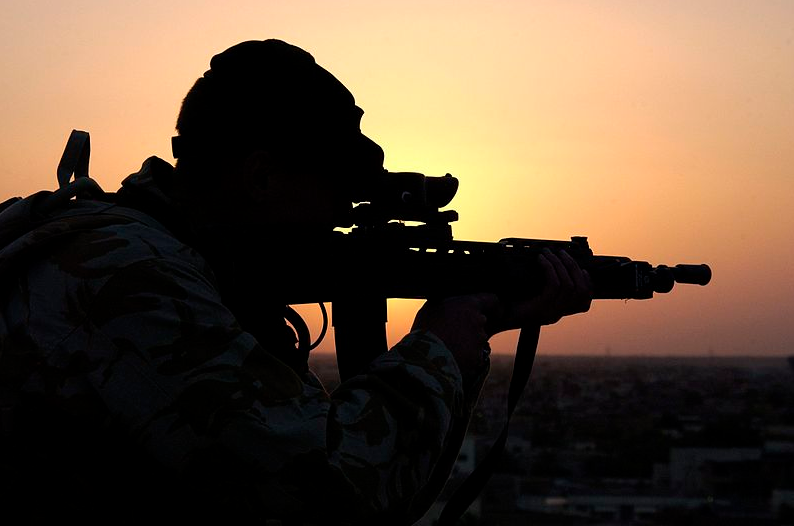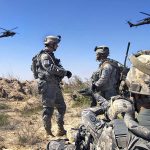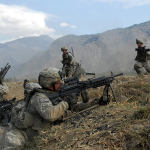This originally appeared in vocal media as “Who is Justin Haywood?” and is republished here with the author’s permission.
________
It was suggested that I had borderline personality disorder/emotionally unstable personality disorder at age 38, following a mental breakdown that followed a breakdown of my body. In hindsight, all the signs were there but I thought at the time that I just had to keep going, clear our debts, and start earning some real money so my family and I would be secure and happy.
Didn’t work.
I remember finally chucking it in when I went sick at work; I’d been telling my management for months that I wasn’t doing well. I was angrier, more depressed. I was starting to feel more and more desperate and suicidal. They ignored me, right up until I went into my boss’s office with my wife, in floods of tears, and told them that I was going sick with depression, stress, and anxiety, all things diagnosed by my doctor at that time. They stared at me as if I was talking in a foreign language and got the admin forms out.
They took some details and then I got my daysack, kissed my wife (she worked at the same depot and also got screwed over by them too), and then went outside to sit at the smoking area and called every helpline that I could think of. I called Combat Stress, Walking with the Wounded, the NHS Veterans service, and others I can’t remember now, but my plea was the same; please help me, I’m struggling, I feel suicidal.
No one at work who was meant to be leading me gave a shit.
All they cared about was that their good worker who historically cleared all his work every day had had the temerity to break. I’d been telling everyone who would listen how bad it was for months and got shrugs in reply from my bosses. I went home and just sat on the kitchen floor, rocking myself and crying my eyes out, screaming at the walls, wishing that the floor would open up and just fucking get it over with as I was heartily sick of life and the pain it brought.
That wasn’t even the worst of it as I descended further into the chaos of my mind over the next few months. I got medically retired by an uncaring company and then tried temp work as a lorry driver. I’d done all my licenses in the preceding two years as a means to escape the company and further my earning potential. It was a good idea that almost worked until I started having blazing headaches, so bad they were up to migraine levels. Whilst the breakdown had been bad, it was that final kick in the teeth that truly sent me over the precipice. Now, some people respond very well to prescription meds.
I don’t.
Out of all the ones I’ve tried, there aren’t many that suit me as I seem to get a lot of the side effects and so feel more suicidal than I should. For example, I have chronic headaches which are at least in part down to cluster headaches, tension headaches, and sinusitis.
Meds tend to increase my headaches to the point of fuzzy vision in one eye and a splitting headache at various points around my skull. Anyway, my Doc put me on some mood stabilizers which are meant to help level out the raging chemical war inside my body, which worked but zombied me to the point of being almost asleep most of the time for a month, and even after that I was going around in a daze all the time.
I just couldn’t function on those. So I weaned myself off and I’ve been meds free since then other than painkillers for the headaches and a spliff for sleep. That was 2 years ago, and I’ve made leaps and bounds in the last 6 months, particularly recently.
I enrolled with my personality disorder service in conjunction with the charity Mind, which is running a 20-week dialectical behaviour therapy course based around mindfulness. That, coupled with writing, has been incredible for me and has led in a very roundabout way to you reading this, so hi reader, thanks for getting this far. I have plans which have just started a few weeks ago, and they started with an insomnia trip and a video on YouTube months ago.
It began when I had my vaccination.
I knew there was a 50/50 chance of me getting side effects and not unexpectedly, I spent the weekend in bed, necking painkillers at the prescribed times, and generally feeling sorry for myself, especially as the jab seemed to kick off my insomnia to a degree that I’ve never experienced before. Other than doing stuff that had to be done, like feeding and watering the boy, clothes washing, etc. I was basically free to feel shit and write or watch stuff on YouTube.
So, YouTube it was and I found myself watching a 95-year-old WW2 veteran (John Dennett) sit down with a 34-year-old (Ste “Nico” Nicholls) a veteran of the wars of the early 21st Century.
It was so inspiring to see these two men, separated by 60 years, talk about how war and peace made them who they are. All the horrific experiences and all the drunken nights with the lads, all being spoken about with complete and dark honesty. There was no embarrassment at talking of suicide attempts or shying away from some really hard conversations, the younger veteran opened up as to what the depths of chaos feel like. He went on to grow a business, RiteFlank, and start a podcast called “A Veterans Opinion.”
The podcast is him and his friends (to start) who he served with in RGR and 2 Rifles, discussing in pretty graphic detail, the circumstances of the casevac and the proceeding troops in contact events.
A friend of Nico’s who got brassed up by a PKM in an elevated position, whilst he was in the open, talks with Nico about how he remembers rolling to try to get away, already shot. The PKM gunner obviously decided that he didn’t want to be taking any ammo home that day and unloaded, in one continuous stream, the entire belt at this poor tom who’s just trying to survive at this point.
He took multiple rounds through various parts of his body, including through his armour, and miraculously survives. The mad PKM gunner was either silenced or withdrew, and the lads started immediate suppressive fire, maneuvering to take out the enemy who have managed to ambush them.
They get a MERT bird in and he’s away on a trip that will end back in the UK, and take him through rehab and back to Battalion, to the quarters at the end of camp where the wounded lads can’t be seen and can’t move from easily without their mates. These are the sorts of conversations we need to be having about not just the soldiers who have fought our political will for decades, but about the aftercare and all things mental health.
Why can’t we have an open, honest, rational conversation about some dark things that some people seem to get all offended by?
If you don’t like listening when the adults are talking, that’s fine, but for the rest of us, let’s start talking about all the things that we’ve been told not to, or those things that we just didn’t know about half as well as we do now.
It is our responsibility, as the current crop of men and women who have gone to war and come back, to not only educate our brothers but also the civilian communities and to help them to understand just what being on ops is like, that you become so tuned in to operating in that environment, that coming home feels like you’re in the wrong place.
For the first few weeks at least, I’d panic momentarily as my hands automatically checked pockets, kit and weapon systems couldn’t find my rifle or my ever-present HF Radio set. Someone I know after being mortared heavily on tour, would be on the ground and rolling for hardcover as soon as an exhaust backfired in a crowded street. His reflexes were continuing to keep him alive, even when his body was thousands of miles away from where those mortars came from. He’d get up, and make a joke about it, and then beast you around the square for laughing.
Off the back of all this, I’ve spoken to more people than I can remember about so many things. Some have phoned me and we’ve spent an hour catching up, and others have chatted via messenger apps. I reached out to all of them because I had some epiphanies whilst binge watching the videos on YouTube.
See, I let myself watch stuff that normally brings up painful memories for me, because I can’t go and live the life that I adored so much, that of an Infantry Soldier out on the ground, treading where most don’t dare to go.
I watched all the old ’80s, and onwards, documentaries about the army. Stuff like following a cadre of guys on the Platoon Sergeants Battle Course, which is a multi-week leadership course to qualify soldiers to hold that position back in their battalions. I watched all the old lessons that I’d been taught, played out on a windswept, cold, and rainy Brecon mountainside, and I realised how much it seemed like DBT, the dialectical behaviour therapy course I’d been doing.
Hear me out and I’ll explain my thinking behind this.

As a soldier, you’re taught a vast array of different drills for “if X happens then you carry out Y attack” and Immediate Action drills to respond to an ambush for example. There are hundreds of acronyms, drilled into you during training and promotion courses, that are the mental tools of the trade to carry out your job. What to do when attacking a trench system, what to do when carrying out a nighttime close target recce, what to do during a section attack, and a thousand other elements of knowledge, skill, and experience, all sit in your mental file system, ready to be brought out in a time of need. You’re taught all about your job, the guy’s job next to you, and your superior’s job, because the only certainty in life is death, and for Infantry troops going into combat that’s as true now as it ever was.
My DBT course treated the subject in very much the same way it would be taught in the army, just without as much bitching and swearing. You’re taught everything you need to know about why your brain and body are reacting and acting in ways contrary to you being in a good headspace, why that is and then possible ways to remedy the crisis.
That to me seems like Explain, Demonstrate, Imitate, and Practice, which is how the British Army teaches its troops. Teach the subject, show the students how to do it, get them to do it, and then send them away for practice. Exactly the same and when you look at mindfulness as situational awareness and battlespace appreciation it starts tying in right? I think that all soldiers have already been taught the pillars of DBT but they don’t know it yet.
If they realised this, then when they’re in that dark depressive headspace that so often leads to suicide they could use those tools, along with some outside assistance, to learn to manage their traumas and to regrow their neural pathways due to the plasticity of the brain.
Just because you’re injured, doesn’t mean your life is over but you may have to adapt.
I will never get rid of my BPD, that’s just not how it works, but I can arm myself with new knowledge and learn how to quell my impulses and rage tendencies, and gradually turn what I thought were flaws into weapons that I can use to empower myself and others through my primary therapy tool.
Writing.
You are all part of my plan to manage my emotional rollercoaster of a mind and to harness it. The only jobs I’ve ever truly enjoyed were as a Nursing Auxiliary on busy nights on the wards or in the emergency department, and being an Infantry soldier out on the ground, operating at the same level as my regular army peers. I took huge amounts of satisfaction in both, but it’s time for me now to tell the stories of soldiers, instead of out on patrol with them.
I realised all of the above and then started thinking like I would on a military course and turning it in my mind until I could see how to do it. I bawled my eyes out when the fog cleared and spent the next 24 hours feverishly, and slightly manically it has to be said, contacting blokes and asking them how they were, listening to how hard it’s been for all of them and in turn relating my twelve years of trauma and finally post-traumatic growth.
I suddenly realised what I could do. It was so obvious that I was properly angry at myself to start, as it genuinely seemed impossible that I’d taken this long to work it out. I can not only kick start my own career as a writer, author, speaker, and mentor (maybe podcasts too), but perhaps I can also be one of the voices for change that I couldn’t hear when I needed it.
I can help educate you as to what it’s like living with this circus in your mind, and maybe by telling the stories of the last twenty years, you’ll learn about the men and women who have suffered and who continue to suffer their demons, for doing what they loved.
Nothing ever really changes on these fundamental levels, and our Grandparents who lived through World War 2 went through these same emotions and challenges too. It’s been months now since this incredible awakening happened and I’m already struggling to remember how I couldn’t feel this excited before. But then, before, I hadn’t set up a multitude of social media accounts and for the very first time ever I’ve thrown myself out into the world, making all my deepest darkest thoughts and ideas public.
I’ve always been terrified of people knowing the true me and felt intense fear of bullying, embarrassment, and just generally not fitting in. Until I realised that my path is mine alone and it doesn’t have to look like others.
I’m writing web content, I’m writing a book, I’m making videos for the first time in my life and networking massively with the Veterans community, and have just started with The Veterans Community Hub in Newton Ayliffe, UK as a staff writer, journalist and in-house promoter of all things Veterans Hub.
In fact, I’m now speaking with people all over the world, right down to a Military Policeman in Gambia (trained by British Army Training Teams). He messaged me, we talked on the phone, and he told and showed me how his village of subsistence farmers lived in Bissary Madi. They have no electricity, no school, the nearest medical facilities are twenty kilometres away, they’ve had bad harvests and they need books, clothes, and shoes for the kids, bikes too for the cycle to school and healthcare for their animals. They’re a happy set of people but they’re struggling and I reckon I can do something about that.
So what do you do? Ignore the call to arms or raise the banners high? Whether through existing organisations or if I have to raise the money myself, I’m going to see that they get what they need. So that’s where I am right now.
I set up from scratch a social media reach of well over thirty thousand people, all over the world, in less than 3 weeks, with an old iPad, an old Nokia smartphone, and £15 earmarked for tobacco, that I spent on Facebook ads instead, targeting my content to US Veterans knowing the reach that they have and then using my network of friends and other veterans here in the UK to spread the word.
I’m now on; Vocal, Facebook, Instagram, Twitter, YouTube, WordPress next, and I even have a TiKTok account. I’ve already gone on a podcast to talk about all of this; that using the teachings of the Infantry, operating in a war zone, and coupled with the knowledge and sheer empowerment that DBT + Mindfulness brings to all of this, I (and others I’m collaborating with) truly believe that we can do something about the epidemic of suicides and generally awful mental health awareness in our countries.
I think that Veterans are in a perfect position to speak on these subjects, because not only have we seen and experienced some horrific things, there seem to be more of us (than in the civilian world) who can not only vocalise what it’s like to live with a mental health condition but also teach mental resilience and a host of other things that DBT teaches you.
We believe that through engaging with others in our own community and others outside it with the same aims, we can all work together to teach these supremely necessary skills to kids and adults alike, so that if an otherwise emotionally stable person starts feeling the scratching creature at the minds back door, they’re in a position to recognise the threat and will have a learned set of tools and options available to them before they reach crisis point.
Not only is this just damn good sense, but it could also conceivably save billions in mental health aftercare. After all, anyone knows that preventative medicine trumps crisis medicine or aftercare hands down. Less psychiatric units, less people in prisons, a generally happier more productive workforce in any company.
_________
This first appeared in The Havok Journal on September 22, 2022.
Justin Haywood is a former 3 Bn PWRR and now a writer, journalist, and digital marketer for The Veterans Community Hub in Newton Ayliffe, County Durham, UK.

As the Voice of the Veteran Community, The Havok Journal seeks to publish a variety of perspectives on a number of sensitive subjects. Unless specifically noted otherwise, nothing we publish is an official point of view of The Havok Journal or any part of the U.S. government.
Buy Me A Coffee
The Havok Journal seeks to serve as a voice of the Veteran and First Responder communities through a focus on current affairs and articles of interest to the public in general, and the veteran community in particular. We strive to offer timely, current, and informative content, with the occasional piece focused on entertainment. We are continually expanding and striving to improve the readers’ experience.
© 2024 The Havok Journal
The Havok Journal welcomes re-posting of our original content as long as it is done in compliance with our Terms of Use.



